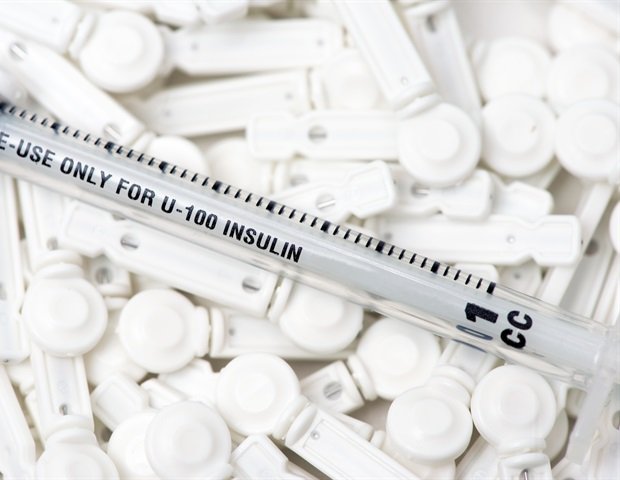The body’s inability to produce enough insulin or use it effectively often leads to type 2 diabetes (T2D), a chronic disease that affects hundreds of millions of people worldwide. Disease management is vital to avoid negative long-term outcomes such as limb amputation or heart disease. In order to cope with the adverse consequences, it is important that patients have a good knowledge about the daily management of the disease.
A team of researchers in Portugal has now assessed how many patients – both those who received insulin therapy and those who did not – have this crucial knowledge about T2D. They published their findings in Frontiers in Public Health.
“Our main motivation was to help reduce the existing gap in the knowledge that diabetic patients have about their disease,” said first author Professor Pedro Lopes Ferreira, director of the University of Coimbra’s Center for Health Studies and Research. “With this study we demonstrated the need to improve knowledge about the disease of patients with type 2 diabetes.”
Knowledge levels vary widely
To assess diabetes knowledge, the researchers used a knowledge test developed for people with type 1 or type 2 diabetes. Among other questions, the test includes sections on diet, signs and symptoms, and medication control. The study involved 1,200 people with diabetes, of whom almost 40% were treated with insulin. The rest of the sample followed specific diets with some of them taking additional oral antidiabetic drugs without insulin, while others relied on diet alone.
The results showed that many participants (71.3%) could answer questions about food correctly and that more than four out of five respondents showed good knowledge of the positive impact of physical activity. More than 75% of respondents also knew the best method for controlling blood sugar levels.
In other areas, however, researchers found that knowledge was severely lacking. For example, when asked which food should not be used to treat low blood sugar, only 12.8% of participants answered correctly. The lowest percentage (4.4%) of correct responses was to a question about the symptoms of ketoacidosis, a potentially life-threatening, end-stage complication of T2D.
One of the main reasons for this difference in knowledge is probably the behavior of healthcare professionals and the areas prioritized when informing patients.”
Pedro Lopes Ferreira, Director, Center for Health Studies and Research, University of Coimbra
Equipping patients with knowledge
The researchers found that medication use was a factor that influenced knowledge about T2D. The percentage of correct answers was 51.8% for patients not on insulin therapy and 58.7% for patients using insulin. Controlling for socioeconomic and demographic factors, being younger than 65, higher education, not living alone, and following a specific diet had a positive impact on knowledge of the disease.
The researchers said their results highlight the need to improve T2D knowledge about certain aspects of the disease, for example blood sugar monitoring, which can help avoid spikes in blood sugar levels associated with acute and chronic complications. Knowledge gaps in individual sections of the test are also something that urgently needs to be addressed, the team pointed out.
They also stated that studies with even more participants could help to better understand the role of socioeconomic and clinical determinants of the disease. “We focused on patients’ own knowledge of their disease, rather than disease management based solely on biological markers. We hope that the results obtained will allow professionals to change the way they inform patients,” concluded Lopes Ferreira.
Source:
Journal Reference:
Ferreira, EL, et al. (2024) Many patients with type 2 diabetes lack potentially life-saving knowledge about their disease. Frontiers in Public Health. doi.org/10.3389/fpubh.2024.1328001.
